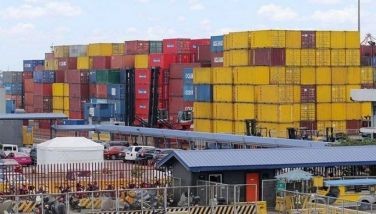Schultz defends Starbucks' tough union stance in testy hearing

NEW YORK, United States — Longtime Starbucks leader Howard Schultz defended the coffee chain's confrontational approach to unionization Wednesday, while insisting it had not violated US labor law in countering the campaign.
The hearing, which got contentious at some points, was convened by progressive Senator Bernie Sanders, focusing on what the independent from Vermont called "illegal union busting."
In his testimony, Schultz said he understood that workers have the right to unionize. But he argued that management-led efforts to persuade employees otherwise were also protected.
"I have the right and the company has a right to have a preference, and our preference is to maintain a direct line with partners," Schultz told the panel.
The company has seen about 300 stores vote in favor of Starbucks Workers United following an initial successful campaign in Buffalo, New York in late 2021.
But the hearing featured a former Starbucks employee who testified that he was fired for union activism.
Sanders depicted the coffee chain as an "egregious" corporate villain against its workers, pointing to numerous complaints from staff that were confirmed as labor law violations by officials at the National Labor Relations Board (NLRB).
"The fundamental issue we are confronting today is whether we have a system of justice that applies to all or whether billionaires and large corporations can break the law with impunity," he said.
Starbucks is fighting the complaints and challenging adverse rulings, characterizing the findings as allegations.
The ex-employee, Jaysin Saxton, a disabled veteran, described being surveilled by managers in his Augusta, Georgia store during a campaign in which workers ultimately voted to be represented by Starbucks Workers United.
"I was fired for supposedly being 'disruptive,'" said Saxton, who has filed an unfair labor practice charge with the NLRB. "I did not receive any write up or discipline -– there was no investigation."
Saxton added that he was drawn to the union to address unpredictable scheduling and to press for better pay and health benefits, noting that he was forced to sometimes turn to the veterans' health care system because of deficiencies in Starbucks' coverage.
No labor contract yet
Schultz, who is still on the Starbucks board after stepping down as interim CEO this month, said he was unaware of cases where workers were fired or relocated to other stores because of union activity.
"These are allegations and Starbucks has not broken the law," said Schultz.
He also said the company had not threatened activist workers with lost health benefits or surveilled them electronically, responding to questions from senators.
But Schultz acknowledged the company had left out unionized shops from a pay increase announced in May amid the burgeoning campaign, and other recently announced benefits at non-union stores such as the potential to receive customer tips digitally.
The longtime Starbucks chief said the company was committed to bargaining in good faith with unions in stores that had voted with organized labor.
But he said the process has been hindered because the company will only bargain in-person, rejecting virtual gatherings that can be taped and pose safety risks to company staff.
Schultz declined to agree to a timetable to reach contract agreements with unionized stores.
Late Wednesday, Starbucks disclosed that a majority of investors at the company's March 23 annual meeting had voted for an independent review of the corporation's actions on workers rights.
The review should include "steps to remedy practices inconsistent with Starbucks' stated commitments," according to the proposal.
Starbucks had urged shareholders to reject the measure, saying it was unnecessary and not in "the best interest of Starbucks, its shareholders, or its partners." But about 52 percent of shareholders still voted in favor of the measure.
- Latest
- Trending




























